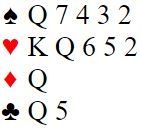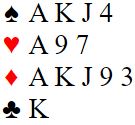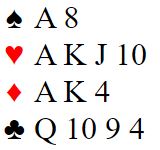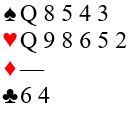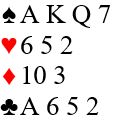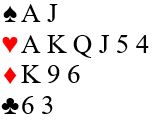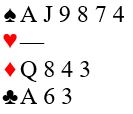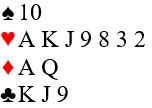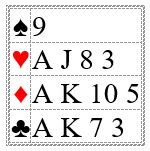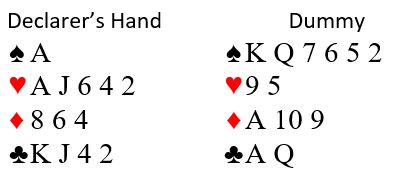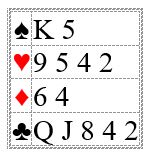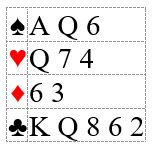You are delighted to pick up this 19 HCP hand:
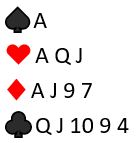
Keeping in mind the prime consideration when opening the bidding is planning your rebid, what is your opening bid?
With a hand this big you can be comfortable bidding your suits in natural order, meaning longest suit first. You plan to open one club and bid diamonds at your second turn, even though diamonds rank higher than clubs. That way you show your big, unbalanced hand (in this example at least nine cards in the minors with clubs longer than diamonds).
Bidding a suit at the two level that ranks higher than the one you opened is known as a reverse. It shows a strong (17+ points), unbalanced hand. Do you see the logic of making sure you are strong before reversing?
Logic: Reversing forces responder (who may have a weak hand) to take the suit preference at the three level, but if opener had started with the higher ranking suit (diamonds in this example) and rebid the lower ranking suit (clubs in this example) responder can choose at the two level.
Change the hand a little, so that it looks like this:

Now your hand is balanced, but you still have 19 points. It’s too good to open 1NT and not quite good enough to open 2NT. This happy dilemma is often characterized as a “one and one-half NT opening bid”. Keeping in mind the prime consideration when opening the bidding is planning your rebid, what is your opening bid?
By opening one of a minor (my preference is one club), you can plan to jump to 2NT at your second turn. The jump to 2NT describes a balanced hand whose strength lies precisely between 1NT and 2NT opening bids, namely 18-19 high card points and balanced. Perfect! Your partner will know the partnership’s high card point assets within one-half of a point.
Question for future consideration: How would you open these two hands with same shape but in the range of 12-14 high card points?
